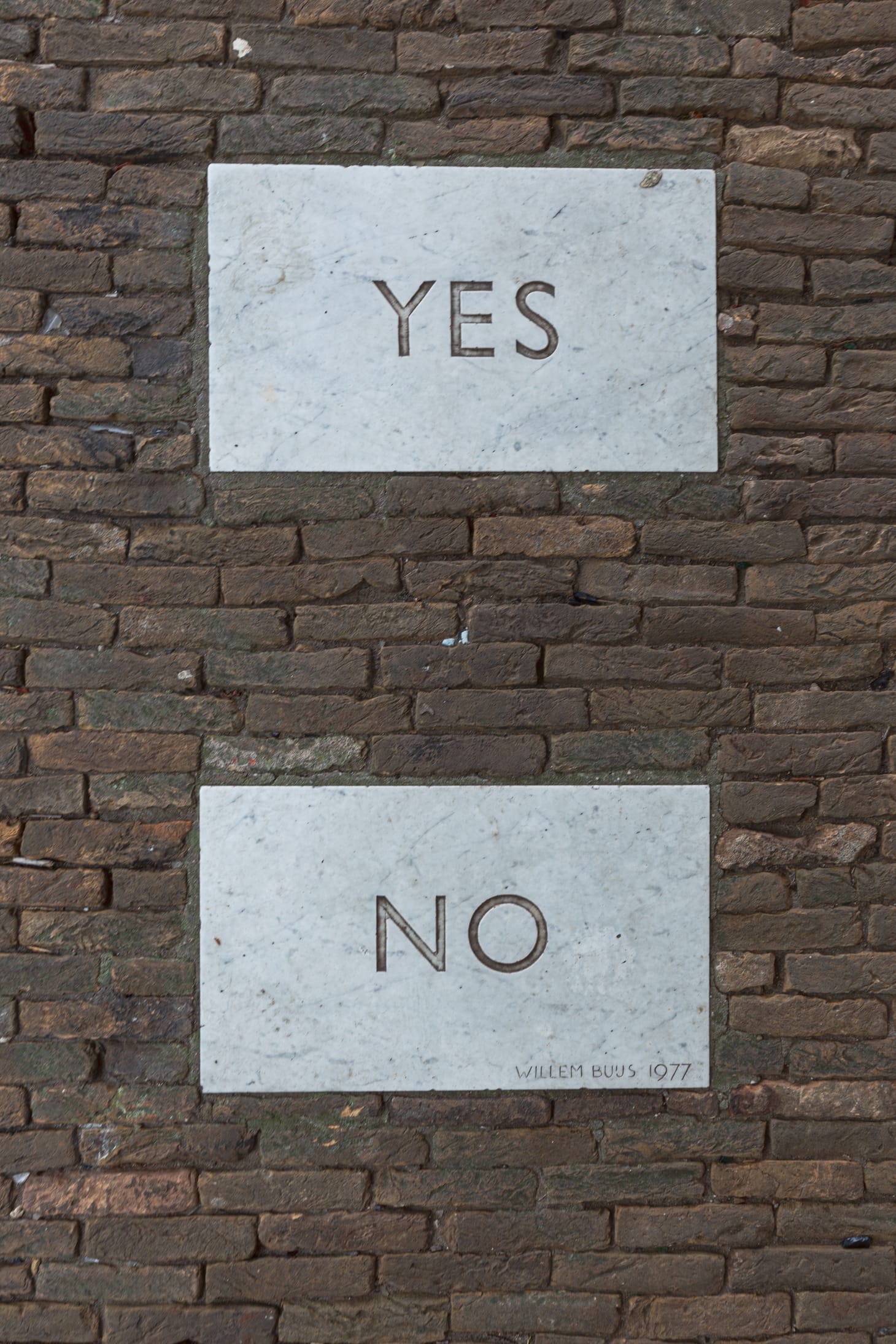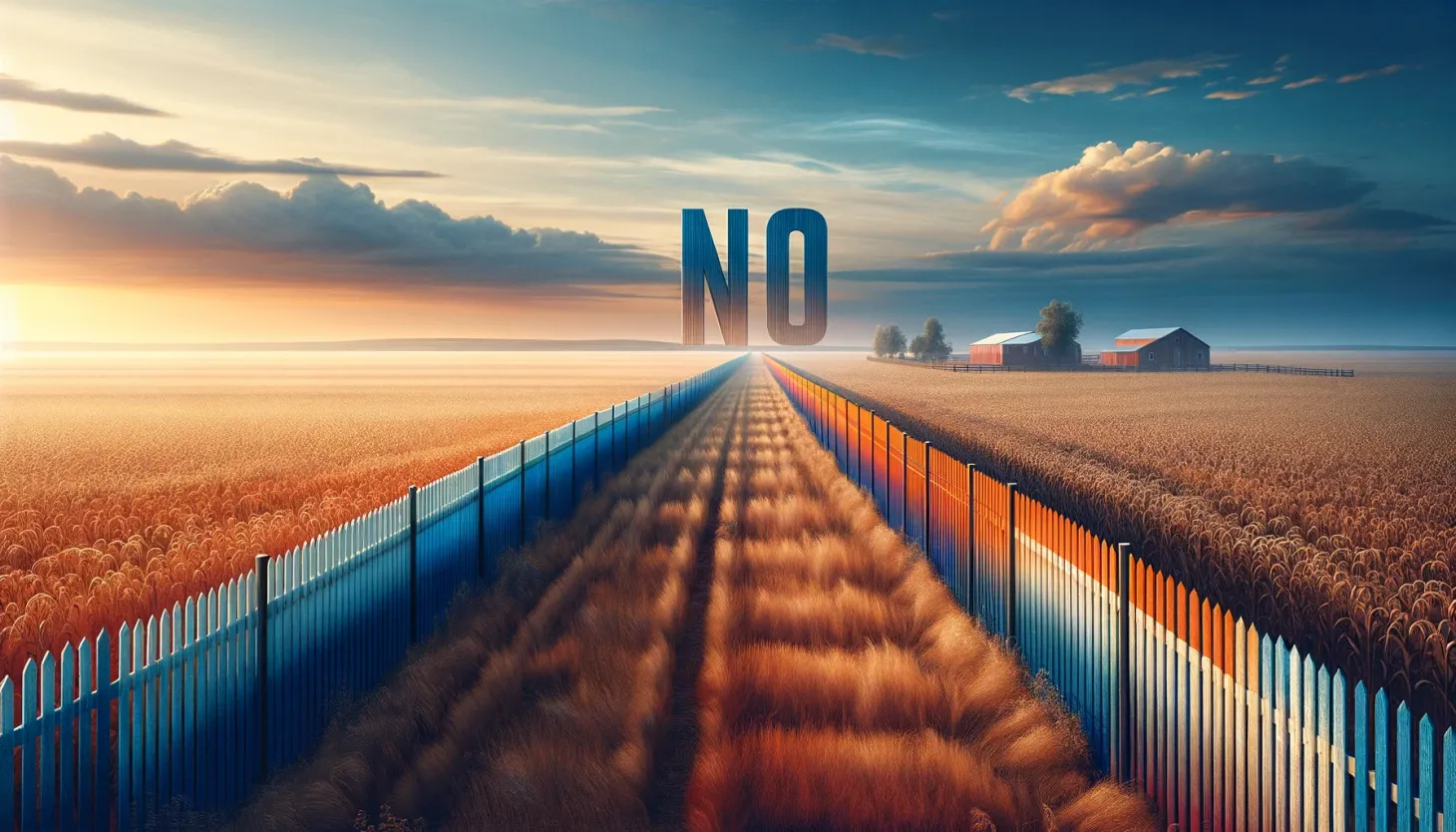When should you say yes, when should you say no?
In order to be successful, you need to seize opportunities, and you need to focus. In other words, you need to say yes to things, but also say no to things. How do we solve this?

“When you say Yes, good things happen. You should say Yes more often.” - me to myself
“In order to be successful, you need to say No to most things. You should say No more often.” - also me to myself
???
*visible confusion*
What a conundrum. I’m supposed to say yes to things - because if I say no to everything, then I will just sit at home not doing anything.
But also no to things - because if I say yes to everything, I will lose focus.
“Yes” and “No” exist on a spectrum.
Obviously, you cannot say “yes” to every single thing. Neither can you say “no” to every single thing.
In order to resolve said conundrum, we’ll need a few frameworks:
- Only 10s
- Explore / Exploit
- Yes but with consideration
- Regret minimisation
Only 10s
Let’s start out with weeding out the “easy no’s”.
Mark Silverman created the “Only 10s” framework: on a scale from 1-10, if your excitement about it is less than 10, don’t do it.
This is generally good advice: by working to eliminate all “non-10” activities, you increase enjoyment in your life, and you get better at focusing on the things that truly matter.
Here’s the thing, though: what if you simply don’t know what you enjoy?
What if you’re stuck in a situation where you spend the majority of your time doing things you don’t enjoy?
Enter our second framework:
Explore / Exploit
Imagine you’re moving to a new city and starting a new job in 30 days. You really don’t want to still be hunting for apartments when you start your new job, so you have exactly 30 days to make the optimal apartment decision for yourself in that time frame.
There is an optimal mathematical solution for this (if you’re into this shit, here is the mathematical proof - have fun!).
For the non-mathematicians among us, here’s how it works:
Go start looking at apartments. After viewing 37% of the apartments (and not signing any lease - this is important), you should switch from exploring to exploiting:
If you look at 2 apartments per day, you should look at 22 apartments to get a feeling for the market, and as soon as a better apartment shows up than the 22 you’ve seen so far, you sign the lease.
37% is the optimal time for stopping.
(Note: this leads to an optimal decision process, not necessarily the optimal result - these are two different things. I can strongly recommend Annie Duke’s book “Thinking in Bets” to understand this discrepancy further)
Based on this framework, you should say “yes” to a lot of things when you’re exploring and aren’t quite sure what you enjoy, or are currently doing lots of things that you don’t enjoy.
You should say “no” when you’re exploiting and are enjoying the things you’re doing. If you love your job, your life, your friends - why change?
The thing is: receiving some new impulses is usually a good idea, as otherwise, we become complacent. So every now and then, even when you’re exploiting, saying “Yes” to something new is a good idea.
Yes but with consideration
Jason Feifer published our third framework on his newsletter recently:
“What did I say yes to recently that warranted consideration?”
From his post:
"Maybe you thought: I don’t have the time. I don’t have the energy. I’m not sure I like that. That sounds risky. That sounds uncomfortable. That’s weird.
But then you said yes anyway.”
When you have these considerations, it means you’re stepping out of your comfort zone, if only slightly.
A few weekends ago, a friend invited me to fly to Budapest to celebrate his birthday. The first things that crossed my mind were: “man, I’m traveling so much already. It’ll be expensive. Should I really fly there and back for 25 hour in this day and age?”
Then, I said yes.
And holy shit, what an awesome Saturday. I am so glad I flew out there, spent time with my friend and made plenty of new ones amidst marvellously intellectually challenging conversations.
Which brings me to my final point, a quote from the author Dave Eggers (which I also found thanks to Jason’s post):
Regret Minimization
“The thing is, I really like saying yes. I like new things, projects, plans, getting people together and doing something, trying something, even when it’s corny or stupid. I am not good at saying no. And I do not get along with people who say no. When you die, and it really could be this afternoon, under the same bus wheels I’ll stick my head if need be, you will not be happy about having said no. You will be kicking your ass about all the no’s you’ve said. No to that opportunity, or no to that trip to Nova Scotia or no to that night out, or no to that project or no to that person who wants to be naked with you but you worry about what your friends will say.
No is for wimps. No is for pussies. No is to live small and embittered, cherishing the opportunities you missed because they might have sent the wrong message.”
The best life is a life with minimal regret. I’ve rarely experienced saying “yes” to things and then to thoroughly regret them; conversely, I’ve had a lot of opportunities where I said “yes” and had a blast (like my trip to Budapest above).
The anecdotes skew strongly in favour of saying yes to things, instead of no to things. Which leads us to this algorithm:
- If you know what your 10s are, do those. Say no to most other stuff.
- If you don’t know what your 10s are or you’re currently in a situation that you dislike, say yes to a lot of things.
- Regardless of what happens, step out of your comfort zone every now and then by saying yes to something that’s not an instant “hell yeah” reaction.
- Always saying no leads to a higher likelihood of regret than always saying yes. Therefore, skew slightly towards yes.
Warren Buffett has this wonderful quote attributed to him: “Take the top 25 things you want to achieve. Then, take all the things outside your top 5 and cross them out. These are your worst distractions - do not do them at any cost.”
Good advice. But if you never say yes to anything else, you might just miss out on your new top 5 thing.
Find what you enjoy doing.
Focus on doing what you enjoy.
Every now and then, take a chance.
Say yes.
One ask from my side
I’ve been getting a lot of feedback that some of you really enjoy what I’m writing - which makes me feel giddy, warm, and fuzzy. Please keep that coming.
My friend Lea mentioned recently: “a few friends and myself love the newsletter - we don’t always agree with what you write, but it encourages discussions among us, and that’s awesome”.
I love hearing that. If everybody agreed all the time on the things that I write, this stuff would be boring as hell.
So if you feel anything like Lea, please tell a friend about this newsletter, and maybe even forward them this email. It’s the best thing you can do to help this newsletter grow.
The more people subscribe, the more time I’m forced to spend on writing the best possible newsletter. Everybody wins.
Thank you.
Dominik Nitsch Newsletter
Join the newsletter to receive the latest updates in your inbox.


